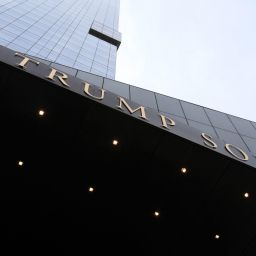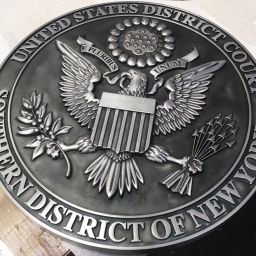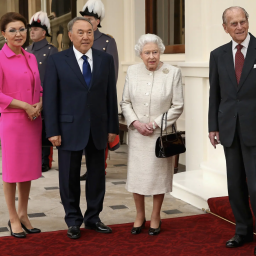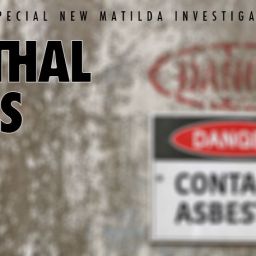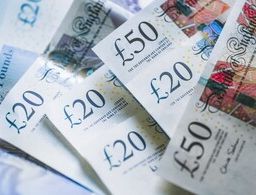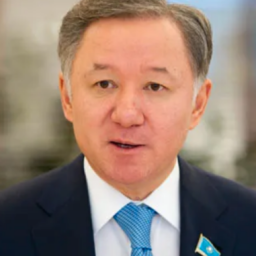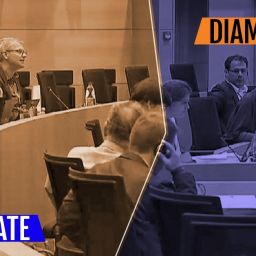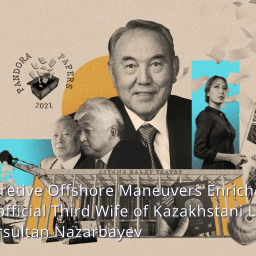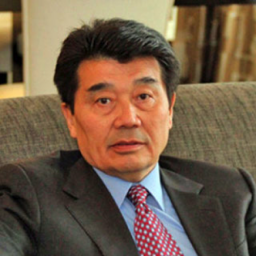“GAS PROTESTS” (OR COUP ATTEMPT) IN KAZAKHSTAN
Two years after Kantar, the Kazakh authorities decided on the final version of what happened – it was an attempt at a coup organized by security officers led by the former chairman of the National Security Committee Karim Masimov.
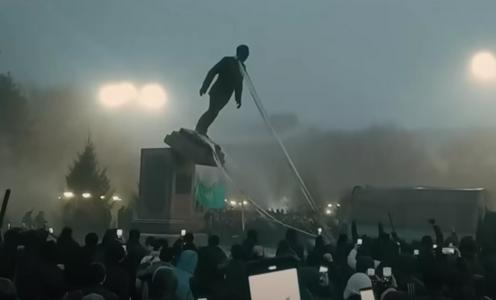
All other versions in Akorda are called speculation, but they cannot prevent their occurrence. Until now, the country is trying not to put the words Kantar and Elbasy next to each other, and those who do this then retract their words because they do not have the facts. However, President Kassym-Jomart Tokayev ’s rhetoric towards his predecessor is increasingly becoming harsher. Monuments to Nazarbayev are being removed in Kazakhstan. One of his nephews was convicted and paid for half the damage caused by the riots. The second is awaiting trial. Details are in the Fergana article.
Movie
At the beginning of January, Kazakh state television channels showed the documentary film “Kantar. Attempted coup. How it was”. The 22-minute film presents the official version of what happened and previously unshown operational footage. Events, the film claims, were supposed to develop “in waves.” First, the conspirators took the people out into the streets and introduced provocateurs into the ranks of the protesters to start pogroms. The second wave hit Almaty on January 4-5. It was about creating an atmosphere of chaos. The rioters robbed gun stores and erected barricades on the streets.
On January 5-6, the third wave began with the seizure of administrative buildings, law enforcement agencies, and the airport. In this way, the organizers tried to sow panic among the population and demonstrate the helplessness of the authorities. During the fourth wave, the “sleeping” cells of radicals were supposed to awaken, as in the Syrian scenario. However, it didn’t come to that.
The main “villain” responsible for what happened was the former chairman of the National Security Committee, Karim Masimov . The authors of the film claim that they have collected the most complete and detailed chronology of January events. But its viewers did not receive answers to the main questions and are unlikely to ever receive them – the Kazakh leadership has closed the courts in cases related to Kantar and is trying to suppress any attempts to comprehend what happened in a way different from the official one.
Since the beginning of the year, two books dedicated to the January riots were supposed to be published in the republic. “Year-January” by journalist Daniyar Moldabekov and “From the Arena to the Square. Living the Almaty tragedy” by sociologist Gulmira Ileuova. The printing house refused to print the first one. This happened after a visit from the security forces with an insistent desire to familiarize themselves with the contents. The second was published, but it never made it into bookstores. Both authors did not promise any sensations, they only documented what they saw with their own eyes in Almaty, as well as the testimonies of other eyewitnesses and participants in the events.
It cannot be said that the authorities generally prohibit any publications about Kantara. At the end of December 2022, Russian journalist Leonid Mlechin’s book “Tragic January” was published, the presentation of which was attended by diplomats from the Kazakh embassy in Moscow. In 2023, Kazakh social activist, and scientific director of the Applied Economics Research Center (AERC) Zhaksybek Kulekeev published his work “January Events: The Fight for Akorda” in Kazakh.
The works of these authors are replete with insights and impressive details. Mlechin described how Tokayev was persuaded to fly out of Kazakhstan during the unrest, for which a plane and $25 million in cash were prepared for him, but the president refused. Referring to social networks and “knowledgeable people,” the Russian journalist also published the testimony of the “main conspirator” Masimov, allegedly given by him to investigators. According to the former head of the National Security Committee, Nursultan Nazarbayev , the first president of Kazakhstan, intended after Kantar to return to the highest post in the country for three years, and then install a more suitable person in this place. Masimov himself was promised the position of prime minister with unlimited powers.
Kulekeyev, who was in Astana during the unrest, mentioned in his book the “ Shaprashty ” operation, which consisted of an attempt to remove Tokayev from power forcefully. The preparation of this special operation became known back in 2019. The trigger for its onset was allegedly Nazarbayev’s heart attack and the subsequent deterioration of his health.
Later, in an interview with the editor-in-chief of the publication ORDA.kz, Gulnara Bazhkenova, Kulekeev stated that he took all the information for his book from open sources, and the excerpt about the operation “ Shaprashty ” – from the anonymous Telegram channel “Nursultan Nightingale” (probably from this post).
“It seemed to me that there was at least some small logic there,” the author explained his motives. — The second reason why I decided to use this information [is that] before that, in many, including opposition newspapers, a lot of materials were published about the role of the Shaprashtins, about the Shaprashtin operation. Therefore, it is impossible to hide this from the public, which means people knew. So I’m not giving away anything that extraordinary here.”
To Bazhkenova’s direct question of whether the author agrees that this was Operation Shaprashty, Zhaksybek Kulekeev answered evasively: “All people are looking for who the main organizer is. Who is the biggest beneficiary of this situation? All people would like to know [who this is], to know the role of Elbasy in these events, the role of family members in organizing the January events. I have nothing here about this. Because I don’t have a single fact in my hands indicating that Elbasy was directly involved in organizing this event.”
Memoirs
Nursultan Nazarbayev did not appear in public during Kantara and did not make any statements. There were suggestions that he and his family members could have left Kazakhstan. However, the former president’s press secretary denied these rumours. Only on January 18, 2022, when the unrest had already been suppressed, Nazarbayev made a video message, saying that he was “on a well-deserved rest in the capital of Kazakhstan and had not left anywhere.”
From the memoirs of the former Kazakh leader, published on December 1 last year, it follows that the unrest found him in Almaty. Expressing gratitude to his assistant Abay Bisembaev, who headed the presidential affairs department for 17 years, Nazarbayev writes: “During the January events, difficult situations arose when I could not trust even the special security assigned to me. And then the person who put me in his car and took me to Almaty airport, thereby helping to ensure that I was in the capital at the hour of trial, was Abai Aidarkhanovich. Such things are not forgotten.”
The memoirs have a separate chapter dedicated to January, but this excerpt is not from there.
The first president casually mentions where he was during the bloody events as if there were no insinuations about this. Nazarbayev also hints that he was in some kind of danger, thus not only distancing himself from those involved in the unrest but also opposing himself to them.
The former president writes about Kantara in a detached manner, using clichés about “organized extremist groups,” “mass riots,” and “terrorist attacks.” He mentions the coronavirus pandemic and the flawed work of the government but calls the struggle for power the main reason for what happened.
“In 2019, when I voluntarily resigned my presidential powers and, under the Constitution, transferred them to the Chairman of the Senate, many took this with hostility, which I know for certain,” Nazarbayev writes.
“Some of those who were against (secretly, of course) my decision to choose a successor dreamed of taking the post of President. At first, they were unable to express their disagreement with me. Then they were unable to express disagreement with the will of the people in the elections.
Always during a change of presidents, attempts arise to fill the vacant seat. Of course, people knew that I was old and thinking about leaving. But they didn’t know when it would happen. Moreover, it happened so quickly that the “challengers” woke up late. I tend to think so. But this is my personal opinion,” writes Nursultan Abishevich.
Opponents of Tokayev, he believes, became more active on November 23, 2021 – on this day Nazarbayev announced his intention to transfer the chairmanship of the ruling Nur-Otan party (now Amanat) to the president. Because it is believed that the party leader has a significantly increased chance of winning the election.
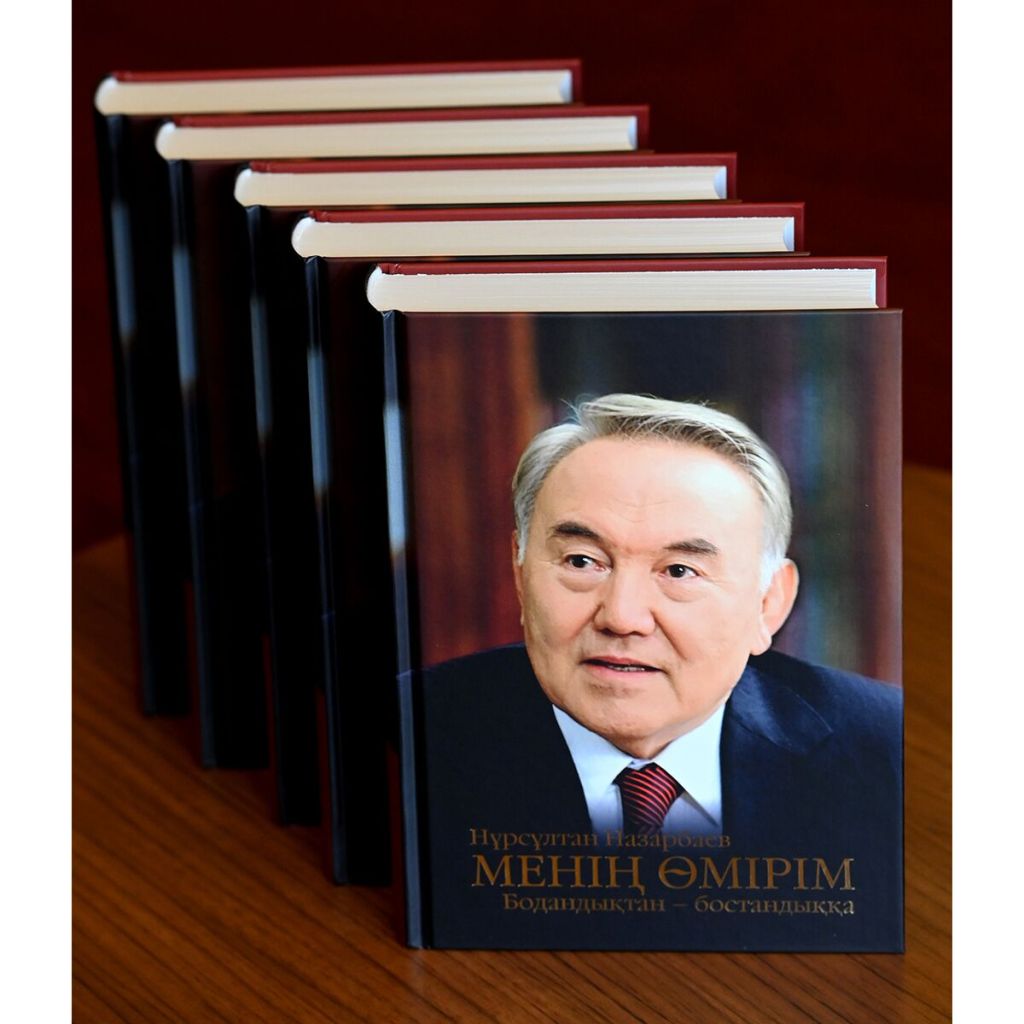
Nazarbayev writes nothing about the bloody events of the first days of January. But at the same time, he accuses the radical opposition in the person of his long-time enemy Mukhtar Ablyazov, who allegedly coordinated the protesters, of involvement in them.
The fugitive Kazakh banker, the leader of the DCK movement, banned in Kazakhstan, really tried to declare himself the organizer of the protests, the first days of which he openly “slept through,” but this looked more like an attempt to remind about himself and, as they say, “ride the wave.”
Towards the end of the chapter, Nazarbayev repeats verbatim the official version of what happened, dwelling in detail on the verdict of the conspirators, the case against whom, in his words, “was examined for a long time and carefully.”
“TO. Masimov and A. Sadykulov were found guilty of high treason, violent seizure of power, abuse of power and official authority, D. Ergozhin – of violent seizure of power, abuse of power and official authority, M. Osipov – of abuse of power and official authority. Karim Masimov was sentenced to 18 years. Others also suffered appropriate punishment,” writes the ex-president.
In reality, this is not the case. The trial of another former deputy of Masimov began in January of this year. He is charged with Article 362 (“Excess of power or official authority”) of the Criminal Code of Kazakhstan. We are talking about Samat Abish, Nazarbayev’s nephew.
Like a bone in the throat
Samat Abish was relieved of his post as first deputy head of the National Security Committee on January 17, 2022, when the CSTO peacekeeping contingent was already being withdrawn from Kazakhstan. From the moment the coup attempt was suppressed, he was “in the orbit of the investigation,” probably actively collaborating with it, but did not have the official status of a suspect. A couple of months after Kantara, the Prosecutor General of Kazakhstan, Berik Asylov, in a conversation with journalists, said that the investigation managed to collect evidence of guilt against Karim Masimov and his three former deputies, but not against Samat Abish.
Until now, the role of the former president’s nephew in the January events is not clear to the general public. A criminal case against him was initiated much later – only in September 2023, and under a much milder article than those under which his former colleagues were convicted. This coincided with the appearance in court of the former head of the 5th Department of the National Security Committee, Ruslan Iskakov, who stated that during the January events, he carried out Abish’s orders. He oversaw the work of the 5th Department of the KNB, and Colonel Iskakov was his direct subordinate.
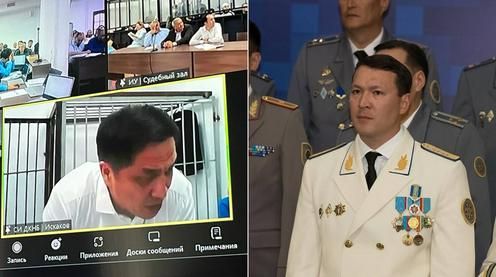
Iskakov claimed that it was Nazarbayev’s nephew, during the chaos that reigned in Almaty, who instructed him to seek help from the well-known criminal authority in Kazakhstan, Arman Dzhumageldiev (Dikiy), to restore order in the city. He considers the order itself justified. However, later Abish allegedly dissociated himself from him, making Iskakov and Dzhumageldiev “extreme” – now both are accused of organizing the riots.
According to investigators, Dikiy Arman, acting under the leadership of a curator from the National Security Committee, was supposed to take control of the crowd and create a so-called “people’s council” to issue an ultimatum to the authorities. According to eyewitnesses, he and his men grabbed protesters, beat them and tortured them. As a result, one person died.
The crime boss claims the opposite: Iskakov allegedly turned to him with a request to save people from the akimat (the Almaty City Hall building that later burned down), calm down the protesters and take protection of social facilities. Dzhumageldiev responded to the call and came to the city centre, where chaos reigned:
“Some attacked police officers, others called for the overthrow of the state system, others stood near the monument and shouted: ”Shal ket! residence, a fifth robbed restaurants and stole alcoholic drinks, and a sixth walked around with weapons in their hands, with helmets and shields, which were taken from the police officers,” this is how he described what he saw.
In the crowd, Dzhumageldiev claims, his people caught the looters and tried to hand them over to the police, but no one wanted to accept them. In fact, during the unrest, the crime boss took over the function of the security forces – this is his line of defence.
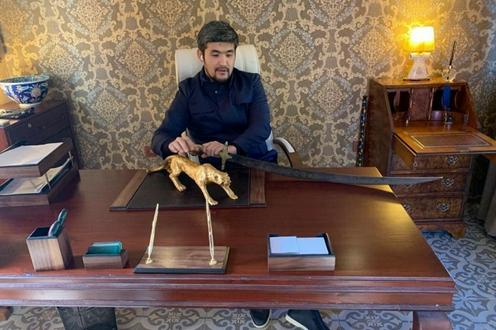
Dzhumageldiev conveyed his version of what happened to journalists through his lawyers. Iskakov’s statement that he was following the orders of Nazarbayev’s nephew was made at the court hearing. Subsequently, the trials of both defendants were closed, and non-disclosure agreements were taken from their lawyers. However, Iskakov somehow managed to break through the information blockade. Within the walls of the KNB pre-trial detention centre, he wrote and released (probably not without outside help) two open letters. The first was published back in 2022 by journalist Mikhail Kozachkov, who later found himself in a pre-trial detention centre on another case.
The second, in early February, appeared on the website of the Russian Novaya Gazeta (recognized in Russia itself, first as a foreign agent, and then completely deprived of its license). There are several interesting points in this message: firstly, Iskakov places responsibility for the start of the protests on President Tokayev and his government, who allegedly knew that the population would react painfully to an increase in gas prices, but deliberately went for it, trying to oust them from the “oil industry” » Nazarbayev’s son-in-law – Timur Kulibayev.
Secondly, Iskakov names former Minister of Internal Affairs Erlan Turgumbayev as the author of the disinformation about 20 thousand militants* in Almaty, claiming that in the centre of the city, there were no militants, but residents of Almaty and the surrounding area.
*At the height of the unrest, President Kassym-Jomart Tokayev, first in addresses to the people and then on Twitter, announced that 20 thousand terrorists had attacked Almaty and needed to be eliminated. This tweet later disappeared from the social network. Almost six months after the riots, during a referendum on changing the Constitution, the president was asked about the real number of attackers in the city. He replied that the figure of 20 thousand was provided by the former leadership of law enforcement agencies and that we were talking about the entire country.
Following the official version, it was assumed that the president, as the main conspirator, was misinformed by Karim Masimov since there were no complaints against Yerlan Turgumbayev, who at that time held the post of head of the Ministry of Internal Affairs. After the January events, although he left the post of Minister of Internal Affairs, he worked as an adviser to the president for another six months. Rumours periodically appeared on the Internet that a case could be filed against him. But they remained rumours, and the former minister did not fall into the orbit of the investigation.
The statements of Iskakov and Dzhumageldiev, as well as the attempts of some social activists to figure out who was in the square during Kantara and who opposed whom during these bloody events, unnerve Akorda. In a long interview with Kazakhstanskaya Pravda in January of this year, Tokayev called on Kazakhstanis not to believe in any speculative versions (apparently, we are talking about all versions except the official one).
“I’ll say it straight: discussions about an alleged popular uprising contribute to the justification and whitewashing of criminal acts. Such irresponsible, essentially provocative conversations lead to the glorification of real bandits and the rooting of harmful criminal psychology in society. This means they are calling for new unrest to the detriment of national security and the well-being of the people. This is a very serious threat. Therefore, the state and society must unite to condemn lawlessness,” Tokayev is confident.
Let us add on our own that one can criticize Kantar’s official version, which is assembled from individual facts and resembles, as Kazakh journalist Vadim Boreyko noted, Frankenstein. One can and should be sceptical about open letters from a pre-trial detention center, the author of which is primarily interested in extricating himself from the blow. However, the very appearance of such “leaks” indicates that the current leadership of the country, building New Kazakhstan, is not as monolithic as it would like to seem. This means that Iskakov’s provocative statements, which Akorda prefers to ignore for now, will not be the last attempt to “shatter” the position of power.
Family
Kantar launched a chain of events called in the press the “deelbasization” of Kazakhstan. The first president was stripped of almost all his regalia, and previously untouchable members of his family were under threat of criminal prosecution. So far, the authorities have treated his nephew, Abish’s older brother, Kairat Satybaldy (Satybaldyuly), the harshest of all of Nazarbayev’s relatives. He is currently serving a six-year prison sentence for grand larceny. Last December, Satybaldy applied for parole, but the court rejected him, citing faulty behaviour.
Since the beginning of the investigation, using the law on the return of illegal capital, Satybalda’s assets of $1.4 billion have been transferred to the budget of Kazakhstan. The total damage from Kantar, as the president previously stated, amounted to $3 billion. That is, Nazarbayev’s nephew covered almost half of this amount.
Over the past months, the wallets of the former matchmaker of the first president, Kairat Boranbayev, who, however, managed to get out from behind bars on parole, Nazarbayev’s son-in-law Timur Kulibayev, as well as the now deceased younger brother Bolat, have become significantly lighter.
Tokayev, who had previously tried to smooth out the corners, spoke extremely harshly about his predecessor’s entourage at the beginning of this year. He said that the political games of Nazarbayev’s closest associates almost tore the country apart. “I believe that there should be no senior and junior presidents at all. When you leave, leave,” he emphasized.
The addressee of this call took the misfortunes that befell his family with restraint.
“If I said that I was equally happy with all the steps taken by Kassym-Jomart Tokayev after the January events, then this would not be true. We are all humans. In addition, it is very difficult to perceive with absolute objectivity strict decisions made in relation to your environment and close relatives, Nursultan Nazarbayev wrote in his memoirs. “And yet, as a person who once launched the process of building a legal society and overcame many difficulties along the way, the trials that befell some of my relatives, I consider a harsh lesson not only for them but also for everyone who is in power structures of our state. For me, nothing is above the law.”
“He’s a monument!”
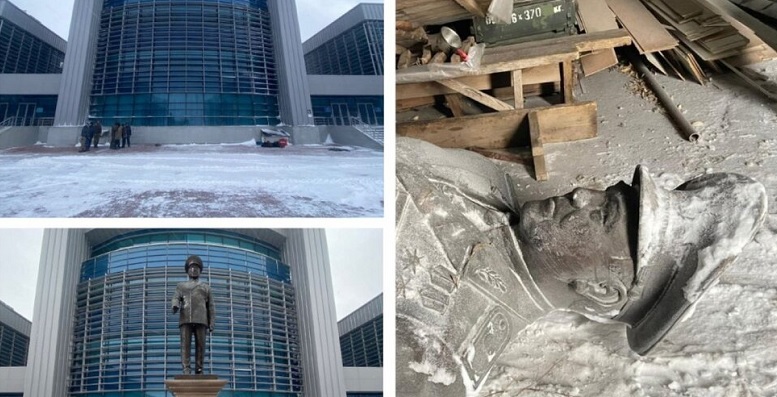
The situation with monuments to the former president, which one after another began to disappear throughout the country, deserves a special mention in connection with “deelbasization.” In recent months, a statue of Nazarbayev has been removed from the grounds of the National Defense University in Astana. Another sculpture disappeared from the atrium of the National Museum of Kazakhstan under the pretext of updating the exhibition.
The portrait of the first president, which hung at the Almaly station of the Almaty metro, was removed. Finally, the four-meter monument to Nazarbayev in Taldykorgan, which participants in the January riots toppled over and broke into several parts, has not returned to its place, and the other day, under the cover of darkness, its pedestal was removed.
A kind of culmination of this story was the decision of the authorities to perpetuate the memory of politician Zamanbek Nurkadilov, a former ally of Nazarbayev, who later went over to the opposition and died at home as a result of three gunshot wounds, which the official investigation called suicide. In 2024 he would have turned 80 years old. The decision to erect a monument to Nurkadilov in his native village of Kegen (in the Almaty region) was made by President Tokayev. His press secretary Berik Uali personally handed over a letter from the head of state to Nurkadilov’s relatives. “To honour the names of the sons of the people and give a worthy assessment of their work is the duty of descendants,” the message said.
Some optimists saw in this a hint to the Nazarbayev Family and himself that they could still face some kind of score.
Author: Анна Козырева
Original article in Russian: FE. ФЕРГАНА
Translated from Russian by © Google Translate

